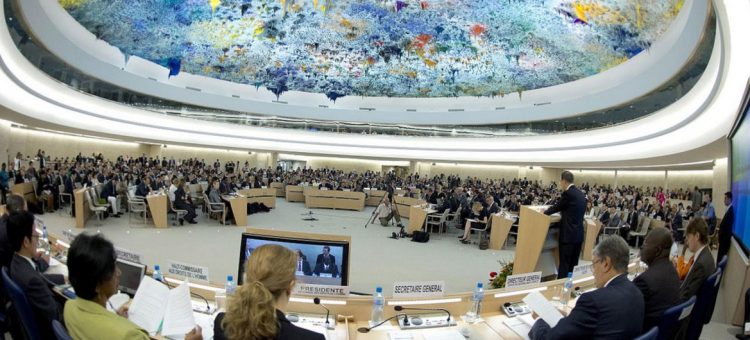Cuba celebrated its election to the United Nations Human Rights Council this Tuesday, a candidacy criticized by activists and opponents of the Cuban government, in what Havana considers a “smear campaign” to “overshadow” the Revolution’s achievements.
“Cuba elected to the Human Rights Council by 170 votes, 88% of the members of the UN…. Despite the smear campaign, Cuba’s achievements cannot be overshadowed,” said Cuban Foreign Minister Bruno Rodríguez on Twitter.
The foreign minister also highlighted that the island “is part of 44 of the 61 international human rights instruments, whose compliance it reports to the UN.”
Electa #Cuba al Consejo de Derechos Humanos por 170 votos, el 88 % de los miembros de @UN
Nuestro país es parte de 44 de los 61 instrumentos internacionales de DDHH, cuyo cumplimiento reporta a ONU
A pesar de la campaña de desprestigio, los logros de Cuba no pueden ser opacados pic.twitter.com/PNjp7NDNIw
— Bruno Rodríguez P (@BrunoRguezP) October 13, 2020
This is the fifth time Cuba occupies one of the 8 seats reserved for the Latin American and the Caribbean states in the UN Human Rights Council, where it will remain for three years as of January 1.
The island, like the rest of the candidates, with the exception of the Asia and Pacific group, reached the unopposed vote as a result of a pact between the countries of each region, a common practice in this type of election, which is opposed by organizations and activists.
Along with Cuba, Bolivia, China, Ivory Coast, France, Gabon, Malawi, Mexico, Nepal, Pakistan, Russia, Senegal, Ukraine, Uzbekistan and the United Kingdom were elected.
This “is a recognition of the significant progress Cubans have made in the enjoyment of all their rights and the extensive record in international cooperation in the field of human rights,” published the island’s Foreign Ministry in another tweet.
La elección de #Cuba al Consejo de Derechos Humanos de @UN es un reconocimiento a los avances significativos que las cubanas y cubanos han alcanzado en el disfrute de todos sus derechos y al amplio historial en materia de cooperación internacional en la esfera de #DDHH. pic.twitter.com/K2ggO9qs7s
— Cancillería de Cuba (@CubaMINREX) October 13, 2020
Havana’s entry into the UN Human Rights Council coincides with complaints made by activists this weekend in Havana, including an “act of repudiation” against artist Tania Bruguera, who was surrounded and insulted by a group of government sympathizers while trying to access the headquarters of the opposition Movimiento San Isidro, in Old Havana.
The issue of human rights is a constant controversial motive around Cuba and its international relations, particularly with the United States. Washington accuses the island of violations of rights related to citizen participation and freedom of speech, while Havana affirms that the U.S. government politicizes the issue and provides a biased perspective on it that denies the violations of certain rights of its own citizens, such as freely traveling to Cuba.
In addition, the Cuban government reiterates that the complaints by activists and opponents―whom it considers “mercenaries” in the service of the U.S. government―are part of a campaign to discredit the island’s image before the international community, while its critics question what they consider the island’s “double standard” when addressing the issue.
EFE/OnCuba










